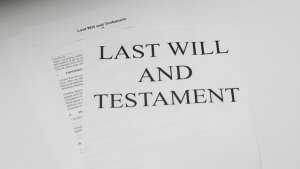Inheritance Tax Returns
IHT return
Are you looking for help with your Inheritance Tax Return?
If you are responsible for delivering an inheritance tax account you have a legal duty to:
- Deliver the account within the time allowed;
- Provide a corrective account and corrected information and documents;
- Tell HMRC without unreasonable delay if you find out that any account, information or document is incorrect to minimise liability for penalties.
Inheritance tax and interest
To comply with HMRC requirements, the IHT400 must be lodged with HMRC within 12 months of the date of death. HMRC’s Inheritance Tax Toolkit is intended to identify common areas of risk in connection with the completion of the IHT400 and identifies for main areas of risk:
- Valuations
- Omissions
- Using out-of-date law
- Inadequate record keeping.
What is Inheritance Tax?
Inheritance tax (IHT) is a tax paid on someone’s estate when they die. The standard rate of Inheritance Tax is 40%. However, the amount of tax you pay depends on the value of the estate and the relationship between the deceased and the beneficiaries. Understanding inheritance tax is key to effective estate planning.
How do you value the estate?
To value an estate, you will need to:
- List all the assets in the estate. This includes the deceased’s home, property, possessions, cars, money, investments, bank accounts, insurance policies and businesses.
- Calculate the value of the assets.
- Deduct any money the deceased person owes such as mortgages or credit card bills.
It’s important to keep proper records of how you worked out the valuation so you can justify it to HM Revenue and Customs. HMRC can inspect records up to 20 years after IHT is paid.
Valuing the assets can be complicated. You will need to take professional advice in most instances, such as an estate agent’s valuation of a home or an appraiser’s valuation of jewellery. The valuation process can take several months if it’s a large or complicated estate.
Who pays Inheritance Tax?
The person dealing with the estate is responsible for paying Inheritance Tax to HM Revenue and Customs. This person is called an executor if the person who died left a will and an administrator if they did not. They will use funds from the estate to pay the tax bill, such as money in the deceased’s bank account. Or they will raise money by selling assets.
When the debts and taxes are paid, the executor or administrator can distribute what remains of the estate. Beneficiaries do not normally pay Inheritance Tax on the things they inherit.
How much can you inherit before paying inheritance tax?
Inheritance tax is only payable on estates worth more than a certain amount. This is known as the ‘threshold.’ The current threshold is £325,000. There is normally no IHT to pay if the estate is worth less than this amount.
There is also no tax to be paid if the person who dies leaves everything above the threshold to a spouse or civil partner, or to an exempt beneficiary like a charity. Currently, only 1 in 20 estates in the UK pay Inheritance Tax.
Everything above the threshold is subject to IHT at a rate of 40%. So, if an estate is worth £600,000, tax will be charged £275,000. The tax would be £110,000 (40% of £275,000).
If the deceased leaves home to their children or grandchildren, then the threshold is increased by £175,000 to £500,000. The increased threshold applies to estates worth less than £2 million.
When do you have to pay Inheritance Tax?
The deadline for paying IHT is the end of the sixth month after the person’s death. If IHT is not paid by then, HMRC will start to charge interest. You can use ballpark valuations and make a payment on account to HMRC if the estate has not been fully valued by the due date.
It’s possible to pay the tax in instalments for certain assets that are hard to sell, such as a home. However, interest will still be charged on the outstanding amount.
Are there any reliefs and exemptions for Inheritance Tax?
Gifts made during the person’s lifetime will be IHT-free if the deceased lives for more than seven years after making the gift. If they die within seven years, the gift may be chargeable to IHT but potentially at a lower rate. The rate depends on when the gift was given and to whom.
Gifts made to a spouse or civil partner, either during a lifetime or on death, are exempt from IHT as long as the spouse or civil partner lives in the UK. Gifts to charities and UK political parties are also normally IHT-free. You can also take advantage of various other gifting exemptions. For example, small gifts up to £3,000 a year and some wedding gifts are not charged to IHT.
Some types of assets get special relief from IHT. These mainly affect business or agricultural assets. It’s a good idea to consult a solicitor if you own these types of assets.
How can I reduce the amount of Inheritance Tax I pay?
There are a few things you can do to reduce the amount of IHT that’s due. These include:
- Leaving the estate to a spouse or civil partner
- Leaving your home to a spouse, child or grandchild
- Leaving a legacy to charity
- Regularly giving away £3,000 a year in gifts
- Putting your assets into a trust for your beneficiaries.
Some of these strategies are more complicated than others, and everyone’s financial situation is different. A solicitor can help you put the proper strategies in place to reduce the amount of IHT that’s due when you die.
What is an IHT400 form?
An IHT400 form is a tax return that must be sent to HM Revenue & Customs (HMRC) within 12 months of the date of death. The IHT400 form is used to calculate the amount of Inheritance Tax that is due on the estate.
Who should complete IHT400?
The executor or administrator of the estate completes form IHT 400 and is responsible for paying any taxes that are due. They will need to do this before making the probate application.
What are some common errors when filling out IHT400 forms?
The IHT400 form is used to report certain gifts made during the deceased person’s lifetime and the value of the estate upon death. This is a long and complex form, and it is important to accurately fill out this form in order to avoid any errors that could result in delays or penalties.
Some of the biggest errors made when filling out IHT400 forms include:
- Failing to apply for an Inheritance Tax reference number before sending form IHT400 to HMRC
- Items missing from the deceased’s assets
- Using an improper method for valuing assets
- Not including official date-of-death valuations from the correct organisations
- Confusing wholly owned versus jointly owned assets, or failing to calculate the deceased’s share of jointly-owned assets
- Failing to list exemptions and reliefs (which can result in too much tax being paid)
- Failing to send the proper documents.
If you are unsure about how to fill in Form IHT 400 or which documents to include, you can speak to a solicitor or contact the Probate Registry for advice. By ensuring that you have all the necessary documents, you can help to make the probate process as smooth and straightforward as possible.
The UK Care Guide explains inheritance tax planning trusts which can be set up to manage what will happen to your estate after you pass away.
To discuss your IHT return with our specialist inheritance tax lawyers call us or complete our online enquiry form.
Contact us today
For a free initial conversation call 020 7485 8811
Email us Send us an email and we’ll get back to you
"She has an encyclopaedic knowledge of the law. She is incredible. She is the guru when it comes to international adoption and she's an expert in her field. She's extremely knowledgeable and highly professional."
"Continues to receive a growing number of instructions from high-net-worth individuals, frequently with cross-border components, and advises on a steady flow of complex cohabitation matters, often involving large property portfolios."
“Literally, putting your future in their hands, Robert Aylott and the team at Osbornes Law took the uncertainty, vulnerability and fear resulting from a catastrophic life event and turned it into a safety net for the rest of my life. Empathy, professionalism and delivering exactly what they say. You’re safe in their hands”.
Jan Atkinson is confident with a straightforward approach. Her practice covers both contentious and non-contentious matters, including wealth planning and estate administration.
Wielkie podziękowania dla Magdaleny Knez za pomoc w mojej sprawie. W moim przypadku była świetnym prawnikiem. Była bardzo pomocna, informowała mnie na bieżąco o wszystkim, co się dzieje, przyjazna i łatwa w rozmowie zarówno po angielsku jak i po polsku. Polecam ją jako prawnika a takze kancelarie prawna Osbornes Law.
New and Insights From our LawyersVIEW ALL
- 9.6.2023
Will Dispute Case Law
New Births And New Relationships? Review Your Will To Avoid A Dispute You’d imagine a wealthy businessman with assets...
Read more - 9.6.2023
Proprietary Estoppel Case Law
On A Lick And A Promise? The First Hurdle In Proprietary Estoppel Claims Solicitors are increasingly instructed by clients who...
Read more - 22.5.2023
Case Law: Dementia-Induced Mild Cognitive Impairment
Dementia is a harsh reality for increasing numbers of families. Sadly, it means the disputed wills solicitors at Osbornes Law...
Read more - 26.4.2023
German Court Rules on EU Succession Regulation
Succession laws vary from country to country which historically made the administration of cross-border estates potentially complex. Since 17 August 2015, the...
Read more - 16.3.2023
Are trusts protected from divorce?
Can trusts protect an inheritance from your spouse? A trust is a separate legal entity. Neither spouse owns its assets. ...
Read more - 1.3.2023
How to prevent someone contesting a will
It is fairly rare in my experience for a parent to write a child out of their will but that...
Read more - 8.2.2023
Gifting Property to Children
Can I gift property to my children? Gifting a property to your adult children is a relatively complex transaction but...
Read more - 15.11.2022
Contentious Probate Case Studies
Contentious probate involving business assets Osbornes Law acts for the defendants to a claim issued to pronounce in favour of...
Read more - 27.10.2022
Contesting A Will Case Studies
Will dispute on grounds of lack of capacity Our contesting a will solicitors acted for the claimants, the adult daughters...
Read more - 2.8.2022
Do you need to register your trust?
The Trust Register was introduced in 2017 as part of anti-money laundering regulations. Previously, only trusts with a UK tax liability...
Read more - 19.7.2022
Beware of appointing your children as executors
Where tensions exist between family members, making your children the executors of your will can cause huge problems with probate,...
Read more - 19.1.2022
Does your will deal with cross-border assets?
If you own assets in more than one country, it’s important to make a robust Will that deals effectively...
Read more - 1.1.2022
Married with children from a previous relationship – how...
There are several ways of doing this. If there are sufficient assets apart from the family home, it may be...
Read more - 18.11.2021
Family Tensions and Deputyship
Disputes between a deputy and the family of the individual concerned, can escalate and become increasingly distressing if issues are...
Read more - 18.11.2021
Particularly sensitive issues around mental capacity
Mental capacity, the right to sex and the carer’s risk of prosecution Does everyone have the right to a...
Read more - 25.10.2021
Inheritance Claims CFA Success Fee Judgment
The Court of Appeal upholds the recoverability of CFA success fees in 1975 Act claims. An individual who claims reasonable provision...
Read more - 20.10.2021
Evidence Needed When Contesting A Will
‘Scrap King’ Multi-million Inheritance Dispute Confirms the High Standard of Evidence Needed to Contest a Will Gary Goodwin, son of...
Read more - 20.10.2021
Dispute Surrounding Interpretation of Will
The ‘nil rate band’ offers an incentive to testators to make their will in a tax-efficient manner, maximising the amount...
Read more - 20.10.2021
Handwriting Expert Witness Concludes Will Forgery
It’s not unheard of for an individual to forge someone’s will with the aim of securing an inheritance....
Read more - 20.10.2021
Understanding Testamentary Capacity
What is testamentary capacity? Testamentary capacity refers to a person’s ability, both legally and mentally, to create a valid...
Read more - 20.10.2021
Contested Will Claim Against Estate Fails
The recent reported case of Shearer v Shearer highlights that adult children cannot expect an estate to support their affluent...
Read more - 17.9.2021
Funding of Probate disputes
Contentious Probate can be very expensive and clients often find it difficult to find the money to cover their legal...
Read more - 13.9.2021
Worldwide Probate Dispute
The deceased died in Ireland leaving very considerable wealth and assets all over the world, including England, but without leaving...
Read more - 13.9.2021
Estate administration with a value of £6million
In this international probate case, we are acting for the executors in an estate administration with a value of £6million....
Read more
The Wills, Probate and Disputed Estates Team View the whole team
Jan Atkinson
 Partner
Partner
Wills, Probate and Disputed EstatesElspeth Neilson
 Partner
Partner
Wills, Probate and Disputed EstatesJenny Walsh
 Partner
Partner
Wills, Probate and Disputed EstatesFlorence Arbuthnott
 Associate Solicitor
Associate Solicitor
Wills, Probate and Disputed EstatesSuzanna Baker
 Senior Associate
Senior Associate
Wills, Probate and Disputed EstatesElla Coles
 Paralegal
Paralegal
Wills, Probate and Disputed EstatesView the
whole team




























